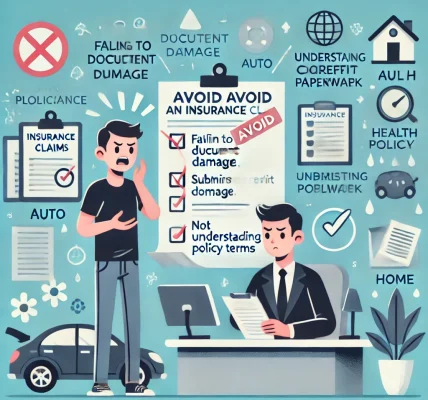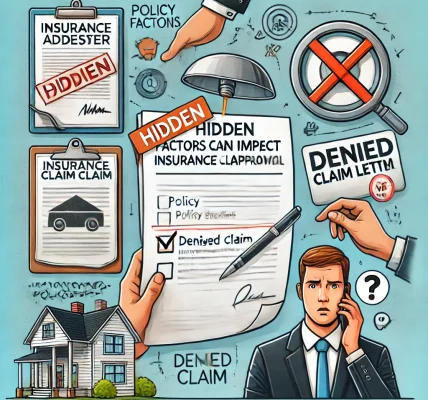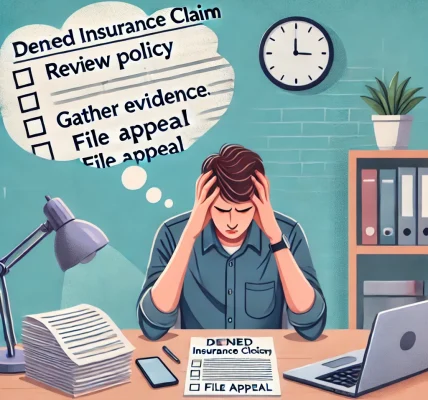Insurance fraud is a significant issue that affects both insurers and genuine policyholders. While fraudulent claims lead to financial losses for insurance companies, they also result in increased premiums, stricter claim evaluations, and longer processing times for legitimate claims. If you are an honest policyholder, understanding how fraud impacts your insurance claims and learning how to navigate the claim process efficiently is crucial.
This guide explores the effects of fraud on genuine claims and provides actionable steps to help you successfully file an insurance claim while ensuring compliance with legal and policy requirements.
Understanding Insurance Fraud
Insurance fraud occurs when individuals or entities deceive insurance companies for financial gain. It can take many forms, including exaggerated claims, staged accidents, false reports, and identity theft.
Types of Insurance Fraud
- Hard Fraud – A deliberate act to fabricate or stage a loss (e.g., arson, staged accidents, or false theft reports).
- Soft Fraud – Exaggerating legitimate claims to increase payouts (e.g., inflating repair costs or misrepresenting the value of lost property).
- Identity Theft Fraud – Using stolen personal information to file claims under another person’s policy.
- Application Fraud – Providing false information when applying for insurance (e.g., omitting pre-existing damages to a vehicle when purchasing auto insurance).
How Fraud Impacts Genuine Insurance Claims
Fraudulent claims force insurance companies to implement stricter verification procedures, which directly affect honest policyholders. Below are some ways fraud influences legitimate insurance claims:
1. Delayed Claim Processing
- Due to the rise in fraudulent claims, insurers conduct extensive investigations before approving payouts.
- This can lead to longer wait times for policyholders who genuinely need compensation.
2. Higher Insurance Premiums
- Insurance companies distribute fraud-related losses by increasing policy premiums.
- Even honest customers end up paying more due to the fraudulent activities of others.
3. Increased Scrutiny on Claims
- Insurers may request additional documentation or verification, making it more challenging to prove legitimate losses.
- Genuine claimants may feel unfairly suspected during investigations.
4. Risk of Claim Denial
- Some genuine claims may be denied due to similarities with known fraudulent schemes.
- Insurers may misinterpret legitimate claims as suspicious, leading to unfair rejections.
Steps to File a Genuine Insurance Claim Successfully
Despite the challenges posed by fraud, you can take proactive measures to ensure your legitimate insurance claim is processed efficiently.
Step 1: Understand Your Policy
- Review your insurance policy to know what is covered and the exclusions.
- Be aware of claim filing deadlines and documentation requirements.
Step 2: Report the Incident Promptly
- Notify your insurance provider as soon as the loss occurs.
- If applicable, file a police report for theft, vandalism, or suspicious incidents.
Step 3: Gather Strong Evidence
- Take clear photos or videos of damaged, lost, or stolen property.
- Keep receipts, invoices, and warranty documents as proof of ownership.
- Obtain statements from witnesses if possible.
Step 4: Cooperate with Investigators
- Be honest and transparent during the claim process.
- Answer all questions accurately and provide any requested documents promptly.
Step 5: Avoid Inflating Your Claim
- Do not exaggerate losses, as insurers have advanced methods to detect fraud.
- Honest reporting ensures faster claim approval and maintains your credibility.
Step 6: Follow Up Regularly
- Keep in touch with your insurance provider for updates on your claim status.
- Document all communications with your insurer, including emails and call logs.
Preventing Fraud to Protect Genuine Claimants
The fight against insurance fraud benefits everyone. Here’s how you can help prevent fraudulent activities that affect genuine claim processing:
- Report Suspected Fraud – If you suspect fraudulent activity, report it to your insurer or a relevant fraud investigation agency.
- Secure Your Personal Information – Protect your identity to prevent fraudulent claims being made in your name.
- Verify Service Providers – Work with licensed professionals for repairs, medical services, or legal assistance related to your claim.
- Stay Informed – Keep up with fraud prevention strategies and avoid engaging with individuals promising quick or exaggerated payouts.
Conclusion
While insurance fraud continues to be a challenge, honest policyholders can take steps to ensure their legitimate claims are processed without unnecessary hurdles. By understanding how fraud impacts the claims process and following best practices when filing a claim, you can improve your chances of receiving a fair and timely payout.
Always be transparent, maintain thorough documentation, and stay informed about your rights as a policyholder. By doing so, you can navigate the claims process smoothly while avoiding complications associated with fraud-related scrutiny.




